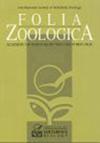Obituaries
Q2 Agricultural and Biological Sciences
引用次数: 0
Abstract
All of us who knew Rod Baxter were shaken by the news of his sudden death on 17 October 2015. Although Rod had entered the community of the “Dormousers” (specialists studying dormice and regularly communicating in meetings) late in his career, he played a prominent role in research on Southern African small mammal biology, ever since his studies at the University of Natal (South Africa) in the 1970s. Roderick Murray Baxter was born on 27 August 1951 in Irene near Pretoria, Union of South Africa (now Republic of South Africa), to Patricia and Murray F. Baxter. His father was head of medical research at the Counsel for Scientific and Industrial Research. The family has resided in South Africa since the 19th century. During the Anglo-Boer War, Rod’s great uncle Jack Baxter was executed by British troops for wearing a khaki suit, which was illegal lest for British soldiers. This tragic incident had left bitter resentment in Rod against British colonialists. Rod had spent his youth together with two brothers and one sister in an arid region, and frequently evoked his early experience of struggling with drought. He went to school in Irene and in Lyttelton (both Gauteng Province, South Africa). In the 1970s he joined the University of Natal in Pietermaritzburg and started his professional career as research assistant of Waldo Meester, studying, at that time, less known small mammals. Although the title at first had sounded impressive to a young postgraduate, the workload was high and the salary was low. Besides, there was a generation gap between these two men. While Waldo Meester, an internationally recognized authority on the taxonomy of African mammals, had based his works on museum vouchers, Rod, just like the majority of other junior staff, had nursed interest on behaviour and was desperate to work with living animals. His colleagues remember Rod as a bright, intelligent, and dynamic young man with a wide interest and true passion, particularly for his beloved and “favourite” mammals: Shrews. His enquiring mind and his excellent powers of observation were equally admired as was his empathy and compassion for his fellows. Caring about others, offering help and time lending an ear or even two to his students who sometimes had private, social, or family problems had top priority throughout his many years working with students and colleagues. At that time, Rod had long hair, a beard, and enjoyed smoking a pipe – he liked the smell of tobacco. He was not the only smoker among the University staff and in those days when people were still allowed to smoke inside, the smell of tobacco had filled the zoology department. After receiving his Master’s degree, he stayed in Pietermaritzburg for a short time before he joined the University of Cape Town. Thereafter, in 1983, he started lecturing at the University of Fort Hare, Alice, Eastern Cape Province, living in King Williams Town and later in Grahamstown together with his wife Ann, which meant long daily drives to and from work. In 2008 they moved to Venda, Folia Zool. – 67 (2): 120–127 (2018) DOI: 1 .25225/fozo.v67.i2.a8.2018讣告
我们所有认识Rod Baxter的人都对他于2015年10月17日突然去世的消息感到震惊。尽管罗德在职业生涯的后期进入了“睡鼠”(研究睡鼠并定期在会议上交流的专家)的圈子,但自从20世纪70年代在纳塔尔大学(南非)学习以来,他在南部非洲小型哺乳动物生物学的研究中发挥了突出作用。1951年8月27日,罗德里克·默里·巴克斯特出生于南非联邦(现南非共和国)比勒陀利亚附近的艾琳,母亲是帕特里夏·巴克斯特和默里·f·巴克斯特。他的父亲是科学和工业研究顾问的医学研究主管。这个家族自19世纪以来一直居住在南非。在英布战争期间,罗德的伯父杰克·巴克斯特(Jack Baxter)因穿着卡其色西装而被英军处决,这对英国士兵来说是非法的。这一悲惨事件使罗德对英国殖民者产生了强烈的怨恨。罗德与两个兄弟和一个妹妹一起在干旱地区度过了他的青年时代,他经常回忆起他早年与干旱作斗争的经历。他在Irene和Lyttelton(都是南非豪登省)上学。20世纪70年代,他加入了彼得马里茨堡的纳塔尔大学,开始了他的职业生涯,担任沃尔多·梅斯特的研究助理,研究当时不太为人所知的小型哺乳动物。虽然这个头衔一开始对一个年轻的研究生来说很有吸引力,但工作量大,薪水低。此外,这两个人之间有代沟。当国际公认的非洲哺乳动物分类学权威沃尔多·梅斯特(Waldo Meester)根据博物馆的代金券完成他的工作时,罗德和大多数其他初级职员一样,对行为产生了兴趣,并迫切希望与活的动物一起工作。在同事们的记忆中,罗德是一个聪明、聪明、充满活力的年轻人,兴趣广泛,充满激情,尤其是对他心爱的、“最喜欢的”哺乳动物:鼩鼱。他的探究精神和卓越的观察力,以及他对同伴的同情和同情,同样令人钦佩。在他与学生和同事的多年工作中,关心他人、提供帮助和时间——倾听甚至倾听有时有私人、社会或家庭问题的学生——是他的首要任务。那时,罗德留着长发,留着胡子,喜欢抽烟斗——他喜欢烟草的味道。他并不是大学里唯一一个吸烟的人。在那个允许在室内吸烟的年代,整个动物学系都弥漫着烟草的气味。在获得硕士学位后,他在彼得马里茨堡呆了很短的一段时间,然后加入了开普敦大学。此后,1983年,他开始在东开普省爱丽丝市的黑尔堡大学(Fort Hare University)讲课,住在金威廉姆斯镇(King Williams Town),后来和妻子安(Ann)一起住在格雷厄姆斯敦(Grahamstown),这意味着每天开车上下班要花很长时间。2008年,他们搬到了佛罗里达州的文达。- 67 (2): 120-127 (2018) DOI: 1.25225 /fozo.v67.i2.a8.2018
本文章由计算机程序翻译,如有差异,请以英文原文为准。
求助全文
约1分钟内获得全文
求助全文
来源期刊

Folia Zoologica
生物-动物学
CiteScore
1.70
自引率
0.00%
发文量
0
审稿时长
3 months
期刊介绍:
Information not localized
 求助内容:
求助内容: 应助结果提醒方式:
应助结果提醒方式:


